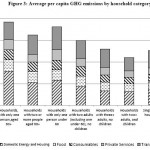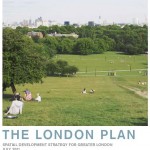Site search:
-
What’s new?
Energy for London Tags
Brent Buildings Camden Carbon Emissions CHP Cities Climate Adaptation Community Heating Community Initiatives Croydon Data DECC Decentralised Energy Distribution ECO Energy Costs Energy Efficiency Enfield FIT Fuel Poverty Funding Green Deal Hackney Haringey Housing Islington Lambeth Library Local Authorities Mayor Newham Ofgem Olympics Photovoltaics Planning RE:FIT RE:NEW Renewable Energy Retrofit Southwark Tower Hamlets Transport Waltham Forest Waste WestminsterEnergy Archives:
- February 2021 (1)
- January 2021 (15)
- December 2020 (15)
- November 2020 (9)
- October 2020 (3)
- August 2020 (5)
- July 2020 (3)
- June 2020 (4)
- April 2020 (10)
- March 2020 (5)
- February 2020 (2)
- January 2020 (3)
- October 2019 (1)
- September 2019 (4)
- August 2019 (2)
- July 2019 (1)
- August 2018 (1)
- November 2016 (8)
- October 2016 (8)
- September 2016 (2)
- August 2016 (8)
- July 2016 (14)
- April 2016 (12)
- March 2016 (16)
- February 2016 (8)
- January 2016 (4)
- December 2015 (1)
- November 2015 (1)
- October 2015 (16)
- September 2015 (3)
- June 2015 (1)
- May 2015 (1)
- April 2015 (1)
- March 2015 (1)
- February 2015 (1)
- January 2015 (1)
- December 2014 (18)
- November 2014 (4)
- August 2014 (8)
- July 2014 (7)
- June 2014 (25)
- May 2014 (8)
- April 2014 (4)
- March 2014 (12)
- February 2014 (7)
- January 2014 (13)
- December 2013 (11)
- November 2013 (15)
- October 2013 (15)
- September 2013 (18)
- August 2013 (5)
- July 2013 (20)
- June 2013 (33)
- May 2013 (8)
- April 2013 (16)
- March 2013 (25)
- February 2013 (14)
- January 2013 (20)
- December 2012 (23)
- November 2012 (23)
- October 2012 (25)
- September 2012 (14)
- July 2012 (12)
- June 2012 (43)
- May 2012 (20)
- April 2012 (8)
- March 2012 (40)
- February 2012 (39)
- January 2012 (40)
- December 2011 (22)
- November 2011 (40)
- October 2011 (33)
- September 2011 (48)
- August 2011 (40)
- July 2011 (58)
- June 2011 (41)
- May 2011 (80)
- April 2011 (38)
- March 2011 (33)
- February 2011 (25)
- January 2011 (24)
- December 2010 (3)
- November 2010 (7)
- October 2010 (6)
- September 2010 (7)
- August 2010 (1)
- July 2010 (2)
- June 2010 (4)
- May 2010 (1)
- March 2010 (3)
- February 2010 (3)
- December 2009 (5)
- November 2009 (2)
- October 2009 (3)
- July 2009 (3)
- June 2009 (1)
- April 2009 (1)
- March 2009 (1)
- February 2009 (1)
- January 2009 (1)
- December 2008 (2)
- October 2008 (1)
- September 2008 (1)
- July 2008 (1)
- March 2008 (2)
- January 2008 (2)
- October 2007 (1)
- September 2007 (3)
- July 2007 (1)
- March 2007 (1)
- February 2007 (3)
- November 2006 (3)
- August 2006 (1)
- February 2006 (1)
- May 2005 (1)
- February 2004 (1)
Author Archives: Admin
‘Smart’ London street lights to save power
27 July 2011: Street lights that can be dimmed to conserve power are to be used across central London to cut energy bills and lower carbon emissions. More than 14,000 lights will be converted as part of Westminster City Council’s Smart Lights project.
Posted in Energy Efficiency, News
Tagged Energy Efficiency, Street Lighting, Westminster
Leave a comment
Royal Marsden CHP
27 July 2011: The Royal Marsden Hospital in Sutton has announced that it will be installing a Combined Heat and Power plant (CHP) on site. The capacity of the gas-fired CHP unit isn’t given, but further information on the project is provided on the following press release from MITIE, the engineering company leading the development.
Posted in Decentralised Energy, News
Tagged CHP, Decentralised Energy, Hospitals, Sutton
Leave a comment
Indirect emissions from UK households
 July 2011: New Economics Foundation research paper- The distribution of total greenhouse gas emissions by households in the UK, and some implications for social policy which looks at – for the first time – indirect household greenhouse emissions embodied in the consumption of food, consumer goods and services, including imports. No regional breakdown emissions outputs for London, but still useful analysis on an area which will be increasingly studied.
July 2011: New Economics Foundation research paper- The distribution of total greenhouse gas emissions by households in the UK, and some implications for social policy which looks at – for the first time – indirect household greenhouse emissions embodied in the consumption of food, consumer goods and services, including imports. No regional breakdown emissions outputs for London, but still useful analysis on an area which will be increasingly studied.
London Plan Energy & Climate Policies
 26 July 2011: After close to two years of consultation, London’s new spatial strategy has been published by the Mayor. The London Plan forms part of the development plan for Greater London and London boroughs’ local plans need to be in general conformity with the London Plan. Its policies guide decisions on planning applications for new developments and strategies by councils and the Mayor. Chapter 5 of the strategy focuses on London’s response to climate change and building on previous versions of the London Plan (2004 and 2008), which achieved a significant impact on the carbon efficiency of new development, the new London Plan sets out a number of requirements. These include:
26 July 2011: After close to two years of consultation, London’s new spatial strategy has been published by the Mayor. The London Plan forms part of the development plan for Greater London and London boroughs’ local plans need to be in general conformity with the London Plan. Its policies guide decisions on planning applications for new developments and strategies by councils and the Mayor. Chapter 5 of the strategy focuses on London’s response to climate change and building on previous versions of the London Plan (2004 and 2008), which achieved a significant impact on the carbon efficiency of new development, the new London Plan sets out a number of requirements. These include:
- CO2 savings of 25 per cent more than national building requirements at a minimum on all new developments
- As previously, all major development should provide detailed energy assessments on how these emission savings are to be made
- In contrast to the Government’s recent climb-down in its definition of ‘zero carbon’, London Plan Policy 5.2Da requires energy assessments to include separate details of unregulated emissions and proposals for how these emissions are to be reduced
- When preparing LDFs boroughs should identify opportunities for reducing CO2 emissions from the existing building stock, and also identify and establish decentralised energy network opportunities.
- With the aid of the London Heat Map, boroughs should develop energy master plans for specific decentralised energy opportunities.
Further policy requirements for decentralised energy systems, renewable and innovative energy technologies and the overheating and cooling of buildings are also set out in the Plan.
Posted in Decentralised Energy, Library, News
Tagged Decentralised Energy, London Plan, Mayor, Planning
Leave a comment
The 10 Pillars of Local Energy Security
 July 2011: A new paper from the Local Government Information Unit (LGIU) which, in the light of the Government’s recent announcements on electricity market reform, proposes that the main responsibility for leaders in councils now is local energy security. Communities, businesses and the council itself need energy to function and the supply should be reliable and sustainable. The right energy in the right place, now and in the future.
July 2011: A new paper from the Local Government Information Unit (LGIU) which, in the light of the Government’s recent announcements on electricity market reform, proposes that the main responsibility for leaders in councils now is local energy security. Communities, businesses and the council itself need energy to function and the supply should be reliable and sustainable. The right energy in the right place, now and in the future.
Posted in Library, News
Tagged Energy Saving Trust, Energy Security, Local Authorities
Leave a comment
New National Planning Policy Framework
26 July 2011: As written about previously, Government yesterday released a draft of its new National Planning Policy Framework (NPPF). This, the Government says, presents a “new, simpler framework for the planning system that safeguards the environment while meeting the need for sustainable growth… replacing the current suite of national Planning Policy Statements, Planning Policy Guidance notes and some circulars …to just 52 pages of policy…and is a key part of reforms to make the planning system less complex and more accessible, and to promote sustainable growth.”
The Government’s previous detailed guidance document has now been replaced by two paras (152 and 153). The NPPF states that: “… local planning authorities should …recognise the responsibility on all communities to contribute to energy generation from renewable or low-carbon sources… consider identifying suitable areas for renewable and low-carbon energy sources, and supporting infrastructure, where this would help secure the development of such sources… identify opportunities where development can draw its energy supply from decentralised, renewable or low carbon energy supply systems and for co-locating potential heat customers and suppliers. “
This is a draft NPPF, and a series of questions on the proposals set out in it are in the accompanying consultation document, including six specific questions on energy (14c-f, and QB 4,5). The deadline for responses is 17 October 2011. A consultation workshop in London is to be held on 7 September 2011. Further details are in:
CLG’s press release, a NPPF summary, the Draft NPPF, and the
NPPF Consultation document, and finally the
NPPF Impact assessment.
The Big Switch
25 July 2011: London Assembly member Mike Tuffrey outlines his new initiative launched today to convert London’s buses, taxis and light goods vehicles to electric power by 2020.
Green Expectations: Lessons from the US green jobs market
 22 July 2011: Hanna Thomas of the East London Green Jobs Alliance is a co-author of this Institute of Public Policy Report (IPPR) report assessing the success of the ‘green jobs’ policy agenda in the US investigating a range of localised, bottom-up approaches to fostering the ‘green economy’. The report makes some useful comments in relation to the Government’s Green Deal programme, which “has been billed as having the potential to create 250,000 jobs, making it the largest single opportunity for job creation in UK energy and climate change policy. But the difficulties experienced in the US in creating jobs in this sector underline the challenge the Green Deal faces in realising this estimate and achieving wider policy success.”
22 July 2011: Hanna Thomas of the East London Green Jobs Alliance is a co-author of this Institute of Public Policy Report (IPPR) report assessing the success of the ‘green jobs’ policy agenda in the US investigating a range of localised, bottom-up approaches to fostering the ‘green economy’. The report makes some useful comments in relation to the Government’s Green Deal programme, which “has been billed as having the potential to create 250,000 jobs, making it the largest single opportunity for job creation in UK energy and climate change policy. But the difficulties experienced in the US in creating jobs in this sector underline the challenge the Green Deal faces in realising this estimate and achieving wider policy success.”
Climate Change and Social Media Project
July 2011: Local Government case study of Brent’s interesting Climate Change and Social Media Project – further information of which in an earlier news story.
London Misses out on Renewable Heating Grants
21 July 2011: After mentioning yesterday that DECC had not as yet launched their renewable heat grants programme, this morning I see a press release announcing the start of the Renewable Heat Premium Payment’ scheme. However, DECC have now stated that the scheme will be mainly focused on households not heated by mains gas – so the opportunities for Londoners to benefit will be greatly reduced. In short the scheme will provide:
- £15 million in total to support up to 25,000 installations; and
- Householders will need to ensure they have basic energy efficiency measures in place before applying
From 1st August, grants for the following technologies will be available:
- Ground Source Heat Pump – £1250 grant (for homes without mains gas heating)
- Biomass boiler – £950 grant (for homes without mains gas heating)
- Air source heat pump – £850 grant (for homes without mains gas heating)
- Solar thermal hot water panels – £300 grant (available to all households regardless of the type of heating system used)
So Londoners who wish to take advantage of this scheme and install solar thermal panels (that is – if they’re not thinking of using their roofspace for PVs…) should go to the Energy Saving Trust’s website who will administer the scheme. Further information is also available on the RHPP DECC factsheet here.
Energy and Climate Questions to the Mayor
July 2011: This month the Mayor answered London Assembly questions in relation to energy efficiency funding of Mayoral programmes RE:NEW and RE:FIT; an update on the forthcoming Renewable Energy Capacity study; the number of solar panels installed on London Underground properties; the amount of carbon emitted by the lights at Piccadilly Circus; and whether the New Bus for London meets the ‘Low Carbon Bus’ standard.
Previous questions to the Mayor can be found here.
Posted in News
Tagged Lighting, Mayor, Photovoltaics, RE:FIT, RE:NEW, Renewable Energy
Leave a comment
Government renews focus on cities
19 July 2011: The Government today announced new support for cities in order to harness their potential to drive growth and prosperity. CLG Minister Greg Clark has been tasked to take on the role of Minister for Cities and the Deputy Prime Minister will chair a new Ministerial Group on Cities.
The Core Cities – the eight largest cities outside of London – will be an initial focus of the group as they seek to develop new ideas. Greg Clark has, during his time as Shadow Climate Change Secretary, been a strong proponent for decentralised energy which will be hopefully be an issue he turns to in his new role, helping remove some of the barriers for cities – including London- to support the development of localised heat and power schemes.

